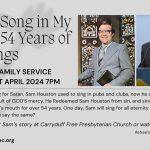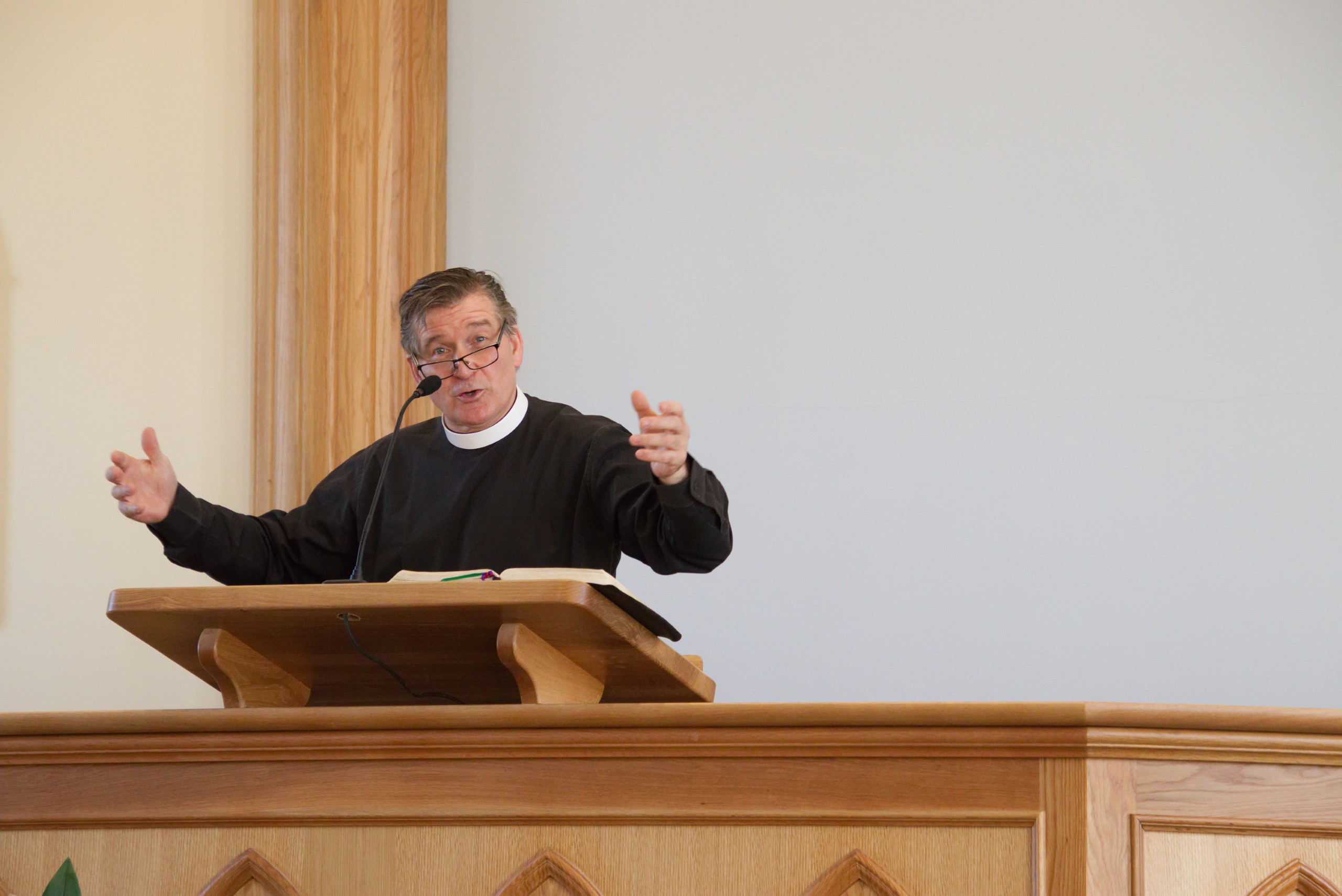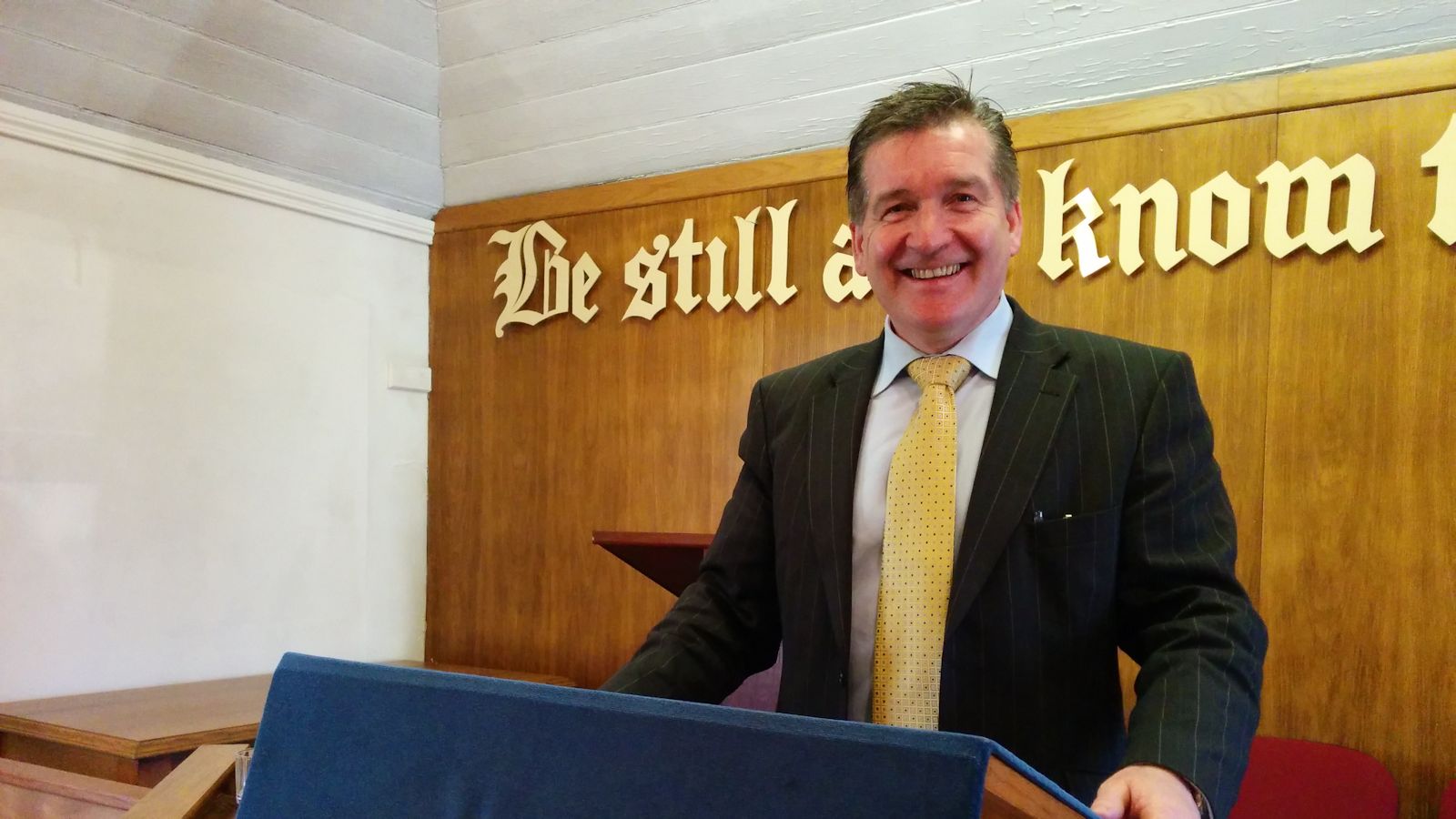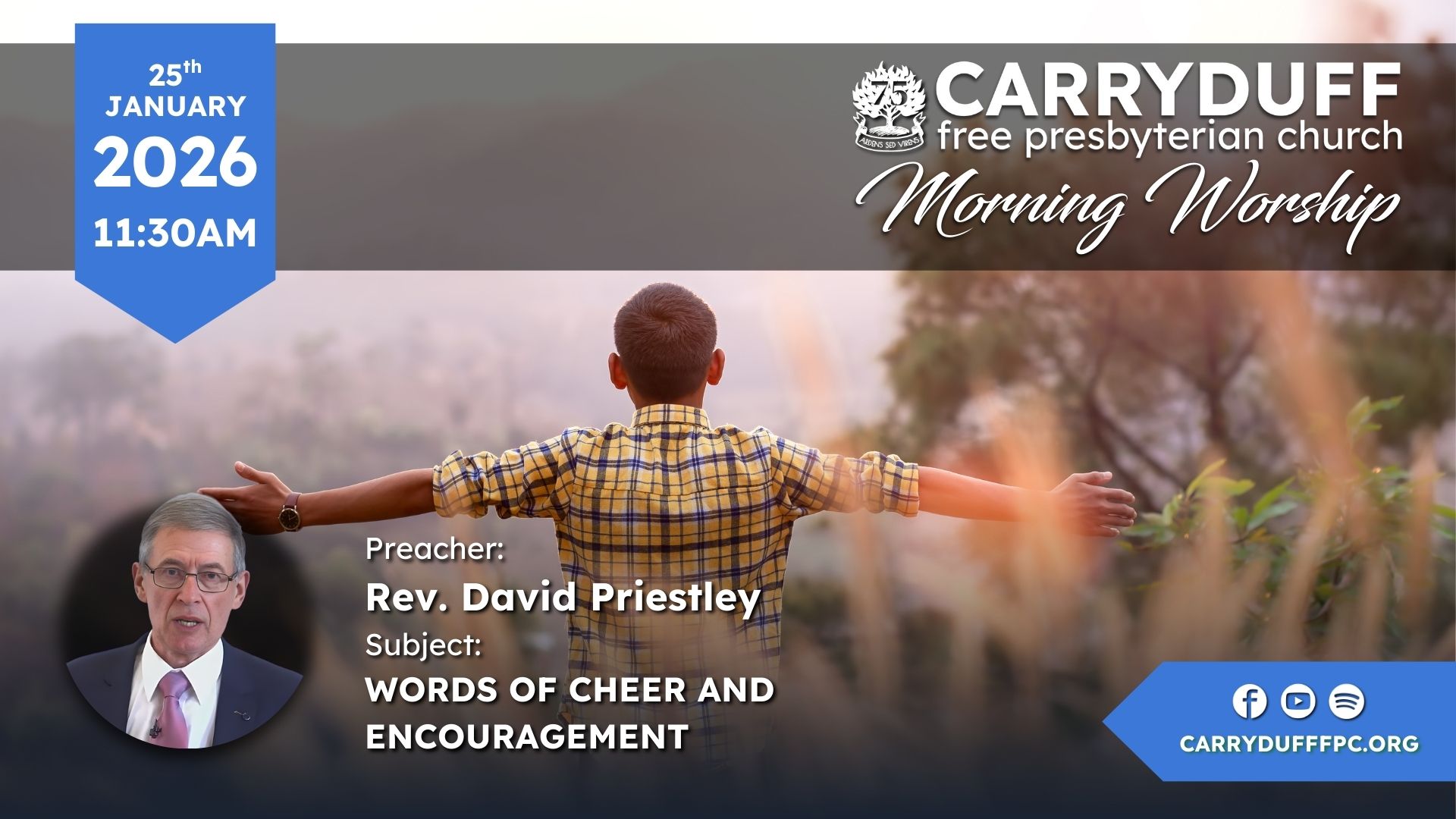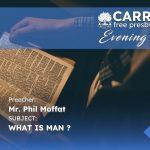Date: SUN 11:30 AM 8th June 2025
Preacher: Rev. David McLaughlin
Bible Reference: Psalms 149:5-6
Let the saints be joyful in glory:
let them sing aloud upon their beds.
Let the high praises of God be in their mouth,
and a twoedged sword in their hand;
Sermon Summary: The Blessings and Battles of the Singing Soldiers (Psalm 149:5-6)
Introduction
Delivered on 8 June 2025, this sermon is based on Psalm 149, with a particular focus on verses 5 and 6: “Let the saints be joyful in glory; let them sing aloud upon their beds. Let the high praises of God be in their mouth, and a two-edged sword in their hand.” The preacher titles the message “The Blessings and Battles of the Singing Soldiers,” exploring the dual role of God’s people as both worshippers and spiritual warriors. As one of the five Hallelujah Psalms (Psalms 146–150), Psalm 149 is presented as a call to praise God joyfully amidst spiritual conflicts, reflecting His grace to His people and His judgement on His enemies. The sermon draws heavily on the themes of joy, praise, and spiritual warfare, urging believers to find strength in God’s grace and Word.
Key Themes and Structure
The sermon is structured around two main points: the enjoyment of the singing soldiers and the engagement of the singing soldiers, with an emphasis on the interplay between worship and spiritual battle.
- The Enjoyment of the Singing Soldiers (Psalm 149:5)
- Joy in God’s Grace: The preacher underscores that believers are commanded to be joyful and sing praises, as outlined in Psalm 149:1–5. This joy stems from receiving God’s grace—undeserved, unmerited favour (Ephesians 2:8–9). The “new song” (Psalm 149:1, referenced in nine scriptures, including Psalm 33:3 and Revelation 5:9) symbolises the transformation of those saved by Christ, who become new creatures (2 Corinthians 5:17). The preacher illustrates this with the story of Billy Bray, a Cornish miner known as the “Hallelujah man,” who expressed uncontainable joy in his salvation, shouting praises with every step, even under threat of being silenced.
- Praise as a Command: Praising God is a divine mandate, both in the congregation and privately, such as “upon their beds” (verse 5). This praise is rooted in recognising God as Creator, Sustainer, Redeemer, and Judge, rather than fleeting circumstances. The preacher challenges believers to praise God even when they don’t feel like it, as their sins are forgiven, they are justified, and they are adopted into God’s family—a Trinitarian blessing.
- Extolling God’s Glory: Believers are called to glorify God in all aspects of life (1 Corinthians 10:31). The term “joyful” implies exuberance, even “jumping for joy,” while “praise” involves boasting in God’s greatness. The preacher describes praise as a continuous act, akin to singing on a journey, reflecting a clean heart and conscience. This glorification is the believer’s purpose: to enjoy God’s grace and extol His greatness (Psalm 48:1).
- Practical Application: The congregation is encouraged to reflect on whether their praise flows from joy and whether they truly rejoice in God. The joy of the Lord is presented as a source of strength (Nehemiah 8:10), enabling believers to persevere through difficulties.
- The Engagement of the Singing Soldiers (Psalm 149:6)
- The Core of the Conflict: The “two-edged sword” (verse 6) is clarified as a metaphor for the Word of God (Ephesians 6:17, Hebrews 4:12), not a call to physical violence. The church faces a spiritual battle against sin, Satan, and worldly influences with an anti-Christian agenda (Ephesians 6:12). These conflicts can lead to discouragement, but believers are urged to maintain joy through praise. The preacher references the English Civil War (1642–1651), where Cromwell’s Roundheads sang Psalms, including Psalm 149, to lift their spirits before battle, illustrating the connection between praise and spiritual strength.
- The Cause of the Conflict: The battle is for gospel truth and light, opposing forces such as militant atheism, secularisation, progressive liberalism, and false religions (e.g., Roman Catholicism, Islam). The preacher cites Jude 3–4, warning against false teachers who infiltrate the church to dilute its message, worship, and adherence to Scripture. Believers are called to contend for the faith, using the Word of God as their weapon, and to seek the “old paths” of truth (Jeremiah 6:16).
- Contemporary Challenges: The sermon addresses modern threats, including a perceived resurgence of Roman Catholicism, which the preacher claims misrepresents its historical actions (e.g., the Inquisition). Other challenges include progressive liberalism’s attack on the family unit, the normalisation of abortion, and the promotion of non-binary gender ideologies, which the preacher asserts contradict biblical teachings.
- The Captain of the Conflict: Jesus Christ is presented as the Captain of salvation, leading His people with His presence and promises (Hebrews 2:10). The preacher references a 1690 sermon for King William, which promised God’s presence, drawing a parallel to Christ’s assurance to His church.
- The Conclusion of the Conflict: Unlike earthly wars, the outcome of this spiritual battle is assured. Jesus promised that the gates of hell will not prevail against His church (Matthew 16:18). Believers fight from a position of victory, empowered by Christ’s help and power.
- Power in Praise: The sermon highlights biblical examples, such as Jehoshaphat’s army (2 Chronicles 20:21–22) and Paul in prison (Acts 16:25), where praise preceded victory. Singing high praises before engaging the enemy strengthens believers, aligning them with God’s power. The preacher quotes Samuel Rutherford, who found joy in the Trinity during imprisonment, illustrating the sustaining power of faith and praise.
- Practical Engagement: Believers are encouraged to combat personal struggles—sin, worry, and fear—by singing God’s praises and wielding the Word of God. By laying burdens at God’s feet and trusting His promises, they can find victory and peace.
Conclusion
The preacher concludes by urging the congregation to bring their fears and struggles to God, slaying them with the power of Scripture and praise. Emphasising the power of praise, prayer, and God’s promises, the sermon calls believers to trust in God’s faithfulness and engage in spiritual warfare with joy and confidence. The message ends with a prayer that these words, inspired the previous evening, will bless the congregation’s hearts.
Key Takeaways
- Believers are commanded to praise God joyfully, reflecting His grace and glory, regardless of circumstances.
- The spiritual battle requires the Word of God as the primary weapon, not physical force.
- Praise is a powerful act that strengthens believers and aligns them with God’s victory.
- Jesus Christ, the Captain of salvation, guarantees victory, enabling believers to fight from a position of triumph.
Subscribe to the podcast here:
Spotify Podcasts | Apple Podcasts | Pocket Casts
Email | RSS | more information here



